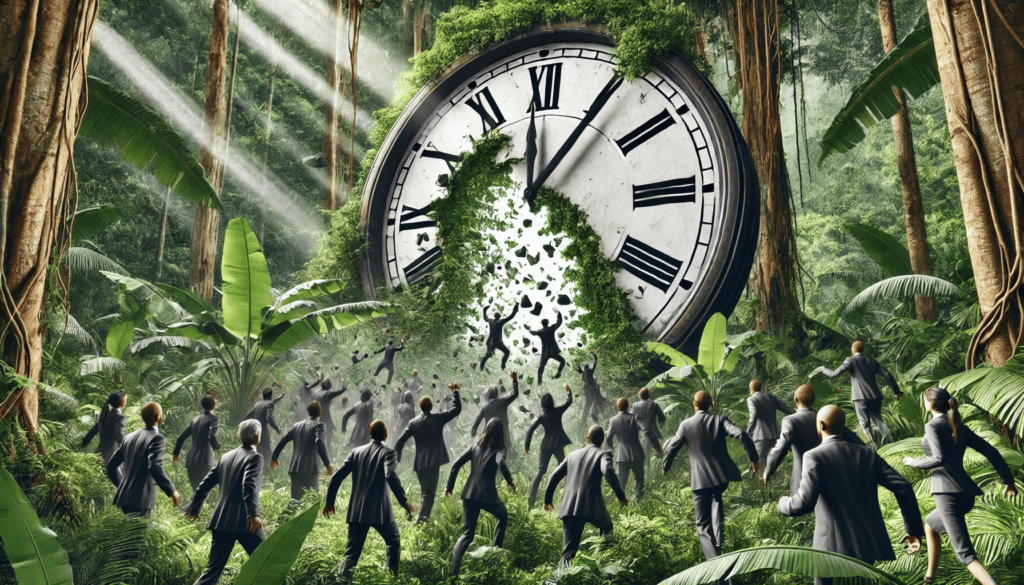
Breaking the Rules: Why It’s Essential for Innovation and Success
Within systems defined by tradition and customary rules, breaking away from these norms has become a distinguishing factor for numerous successful people and organizations. By breaking free from norms, people are able to find unique paths to success, fueling creativity and innovation. Here, we’ll explore why breaking the rules can be good, what happens when we do, and why it’s human nature to question them.
Why Is It Good to Break Rules?
Breaking rules allows us to challenge limitations, rethink boundaries, and uncover innovative solutions. Every rule is designed either to level the playing field or tilt it—and the choice to follow or break them can lead to fresh perspectives. Many successful people who question rules see them not as restrictions but as stepping stones to growth. As they break rules, they open new doors for themselves and often lead the way for others to do the same.
-
Breaking Rules Can Spark Innovation
Rules are typically created to maintain the status quo, not necessarily to drive progress. By stepping outside these boundaries, people often develop revolutionary ideas and products that reshape entire industries. Rules might guide us, but breaking them encourages us to see what else is possible. -
Human Nature and Rule-Breaking
Humans are naturally curious and inclined to push limits. People often break rules not out of defiance but out of curiosity and a desire to explore what lies beyond. This drive to experiment and question norms is why we have so much progress in fields like science, art, and technology. -
The Balance Between Choice and Consequence
When we choose to break a rule, we’re also choosing to face any consequences that may come with it. However, understanding this balance empowers us. We decide which rules align with our values and which don’t—and by doing so, we take ownership of our decisions and their outcomes.

What Happens If You Break the Rules?
Breaking rules can lead to both positive and negative consequences. Depending on the context, breaking a rule might bring penalties or open up unexpected opportunities. Those who break rules are often the ones who shape how they’re rewritten. Each week, countless trailblazers across industries challenge the existing rules, prompting changes that reflect evolving values and ideas.
-
Rules Evolve Because of Rule-Breakers
Rules are not static—they adapt over time, largely due to those who break or question them. This evolution is vital for a society’s growth, as it allows outdated or restrictive rules to be replaced with ones that serve a broader, more modern purpose. -
Rules Aren’t Absolute Truths
It’s essential to remember that rules are not laws of nature; they’re based on theories about what’s best at a certain point in time. Often, these theories are shaped by the limited information available at the time of creation. This lack of permanence leaves room for re-evaluation and growth. -
The Impact of Breaking Rules on Culture and Society
Rules shape our culture and influence how we think and behave. However, when individuals defy societal rules, they often drive cultural shifts. Rules that no longer fit today’s world need to be questioned. Rule-breakers have historically been the catalysts for necessary change.

Why Do Humans Like Breaking Rules?
Our attraction to breaking rules comes from a desire for autonomy and freedom. People want the ability to make choices, to think independently, and to decide what’s best for themselves. Following rules is a choice, but understanding the purpose behind each rule can empower us to know when they deserve to be broken.
- The Value of Creating Personal Rules
We each have the power to create our own standards and rules, tailored to our individual goals and values. These self-imposed rules are often more effective because they are based on personal convictions, rather than external mandates. - Rules Are Open to Interpretation
Rules, particularly unwritten ones, leave room for interpretation. These types of rules can reflect societal expectations rather than strict regulations, but knowing when to follow or challenge them is part of personal growth.
“Rules Are Made to Be Broken”
This phrase encapsulates a mindset that understands rules are tools, not absolute mandates. Rules were designed to guide, but they’re not the only way to accomplish things. Committees often create rules, and the compromises they involve can dilute their original purpose. Those who create rules may lack relevant experience, which can sometimes lead to unnecessary restrictions. Successful individuals question these limitations and often find more effective ways to achieve their goals.
Key Thoughts on Rules and Success
- Rules Should Enable, Not Restrict
Rules that stifle more than they empower are often due for reconsideration. Some of the most transformative advancements have come from people who recognized when rules were more of a barrier than a guide. - Rules Influence, But So Do We
While rules influence behavior, the reverse is also true. People’s actions and choices frequently inspire updates to existing regulations, showing that our behavior has the power to shape societal standards. - Less Restriction, More Possibility
There are fewer rules in life than we might assume. Many of the limitations we feel are self-imposed or based on outdated ideas. Embracing this flexibility allows us to realize that rules are not always necessary to achieve success and that the path to accomplishment often requires paving a new way.
Final Thoughts: Understanding the Purpose Behind Rules
Rules are not just meant to be followed; they’re meant to be understood. By evaluating why a rule exists and who benefits from it, we can make informed choices about whether it should be followed or rethought. Rules serve as guides, but they don’t hold all the answers. Sometimes, the most impactful decisions come from those who decide to break free from convention and create their own path.
As you consider the rules in your own life, remember that each one represents a choice—one that’s yours to make.

